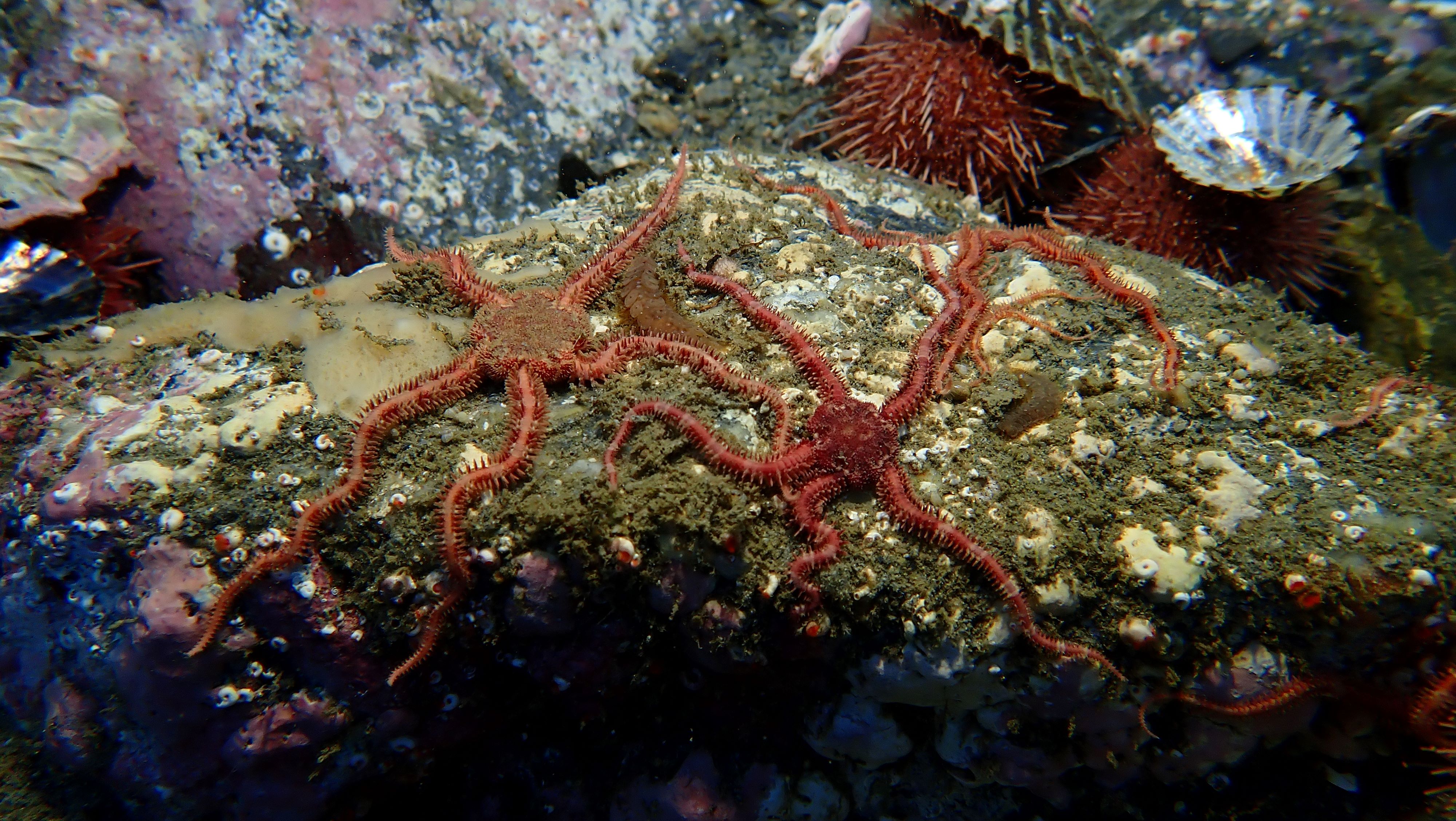Ensuring the conservation and responsible management of key marine areas for wildlife
The Southwestern Atlantic is one of the most energetic and productive seas in the southern hemisphere. The natural spectacles we enjoy on Argentina's coasts are sustained by its ecological integrity. Penguins, cormorants, sea lions, southern elephant seals, and many other species that breed on beaches migrate and feed in the sea. The integrity of the sea depends on ecological and oceanographic processes that are not visible to the naked eye, such as productive fronts and healthy food webs, among others. Sharks and rays, for example, are apex predators with a key role in the sea, and in an assessment of more than 35 species in the Patagonian Sea, 57% were identified as being under some category of threat of extinction. The environmental and climate crisis impacts Argentina's sea and requires actions that can only be addressed based on scientific knowledge and coordinated and collaborative strategies.
Challenges
Argentina's sea and its species are impacted by overfishing; illegal, unreported, and unregulated fishing; discarding of non-commercial species; incidental catches of seabirds and marine mammals; pollution in all its forms; the introduction of species; seismic exploration sound bombardment; and the risk of spills or ac idents associated with hydrocarbon activities. Climate change adds uncertainty and intensifies these threats. The main challenge is the design, development, and effective implementation of conservation strategies based on collaborative and coordinated processes between the government, private actors, civil society organizations, and communities. This requires trained government authorities with adequate funding to lead inclusive processes for the design and implementation of strategies. Awareness and the strengthening of ethical values such as respect for nature and its species are key components in any process of change to reverse the current environmental and climate crisis.

Our Work
We promote the responsible management of human activities at sea and the protection of marine areas that are key to the ecological integrity of Argentina's sea and its species. Our strategies are based on promoting respect and admiration for nature and its species, supporting scientific research that generates the knowledge necessary to guide conservation and management strategies, collaborating with government authorities with technical contributions, capacity building and strengthening, and facilitating participatory processes for the design and effective implementation of conservation strategies.
Achivements
WCS Argentina has participated and contributed directly to the promotion and creation of 10 marine protected areas in Argentina, including the three national parks that make up the National System of Marine Protected Areas and protect 113,700 km2 of Southern seas. Ninety-three percent of the ocean areas currently protected in Argentina benefited from WCS Argentina contributions and scientific expertise. Our commitment includes supporting and collaborating with government authorities in the effective implementation of these areas. We are a founding organization of the Forum for the Conservation of the Patagonian Sea and Areas of Influence, a network of 30 civil society organizations from Chile, Argentina, Uruguay, and Brazil, committed to marine conservation since 2004, with a regional ecosystem approach and working in genuine partnership with the public and private sectors to promote effective management of the Southern Cone Sea. In partnership with various government agencies, academic institutions, and researchers, we have developed high-value scientific products for marine management and conservation, such as the Patagonian Sea Atlas of Species and Spaces, the State of Conservation of the Patagonian Sea and Areas of Influence, the website of Protected Coastal and Marine Areas of Argentina, the collaborative project “Tracking Whales”, the Marine Bioregions Report of Argentina, the reports on the Conservation Status of Species in the Patagonian Sea, and the Patagonian Sea Lighthouses. Relevant areas for the Conservation of Marine Biodiversity, among others. We also lead the country's longest-running citizen science and shark conservation project, in close partnership with recreational and artisanal fishermen. We are a committed organization and a leading player in the conservation of the Argentine Sea and its life forms.
Our goal is to ensure the conservation of biodiversity and ecological functions in the Southwest Atlantic. With that focus, we monitor interaction of marine biodiversity and human activities to promote the creation of marine protected areas. In addition, we develop responsible ecosystem-based management practices for the ocean and work towards creating awareness about areas that are important to wildlife and challenges to conservation.